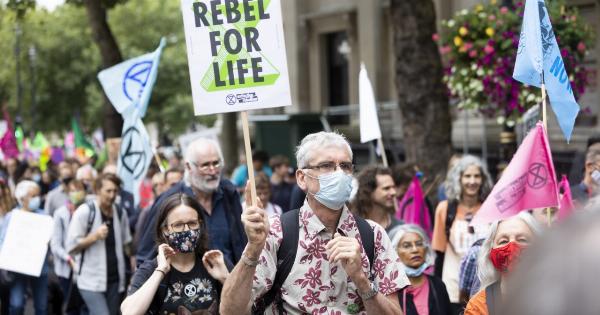Living with HIV can be challenging, but it becomes even more difficult when coupled with incarceration. HIV positive prisoners in Korydallos face unique healthcare barriers and obstacles that can greatly impact their overall well-being.
However, with appropriate medical support, education, and a comprehensive healthcare approach, it is possible to maintain the health of HIV positive prisoners in Korydallos.
1. Access to Antiretroviral Therapy (ART)
One of the key factors in maintaining the health of HIV positive prisoners is ensuring access to antiretroviral therapy (ART). ART is a combination of medications that can effectively control the HIV virus and prevent its progression to AIDS.
It is essential for HIV positive prisoners to receive uninterrupted access to their prescribed ART medication to manage their condition effectively.
2. Regular Medical Check-ups
Regular medical check-ups are vital for HIV positive prisoners. These check-ups allow healthcare providers to monitor the progress of the disease, assess medication efficacy, and identify potential side effects.
Prison healthcare systems should prioritize routine medical check-ups to ensure that HIV positive prisoners receive the necessary medical attention.
3. Mental Health Support
HIV positive prisoners in Korydallos often face emotional and psychological challenges. The stigma associated with HIV, coupled with confinement, can lead to increased stress levels and the development of mental health disorders.
Providing mental health support services, including counseling and therapy, is crucial for maintaining the overall well-being of HIV positive prisoners.
4. Education and Awareness
Education and awareness programs play a significant role in maintaining the health of HIV positive prisoners. These programs should focus on providing accurate information about HIV transmission, prevention, and treatment options.
By empowering HIV positive prisoners with knowledge, they can actively participate in managing their condition and making informed healthcare decisions.
5. Infection Control Measures
Prisons are communal environments where infectious diseases can spread rapidly. Implementing robust infection control measures is essential for protecting the health of HIV positive prisoners.
This includes ensuring access to clean needles and syringes, promoting safe sex practices, and providing education on hygiene and proper disease prevention techniques.
6. Community Reintegration Programs
Preparing HIV positive prisoners in Korydallos for successful community reintegration is imperative for maintaining their health post-release.
These programs should focus on facilitating access to healthcare, offering continuous support, and addressing social determinants of health. By addressing the underlying factors that contribute to poor health outcomes, HIV positive prisoners can have a higher chance of leading a healthy and fulfilling life outside of prison.
7. Substance Abuse Treatment
A significant number of HIV positive prisoners struggle with substance abuse issues. For effective health maintenance, access to substance abuse treatment programs is crucial.
These programs should address the root causes of addiction and provide comprehensive support to HIV positive prisoners, reducing the risk of relapse and promoting a healthier lifestyle.
8. Peer Support Networks
Establishing peer support networks within the prison system can greatly impact the psychological well-being of HIV positive prisoners. These networks provide a platform for shared experiences, emotional support, and encouragement.
Peer support can enhance treatment adherence and provide a sense of belonging, positively influencing the overall health outcomes for HIV positive prisoners.
9. Prevention of Opportunistic Infections
HIV positive prisoners are more susceptible to opportunistic infections due to compromised immune systems.
Comprehensive healthcare plans for HIV positive prisoners should include preventive measures against opportunistic infections, such as vaccinations, proper hygiene protocols, and regular screenings.
10. Collaboration with Community Healthcare Providers
Collaboration between the prison healthcare system and community healthcare providers is vital for maintaining the health of HIV positive prisoners both during imprisonment and after their release.
This collaboration ensures continuity of care and smooth transitions, facilitating access to healthcare services and support networks.





























